(Just so you know, there may be some affiliate links in this post, but we only recommend items that we believe in and think will benefit you on your travels.)
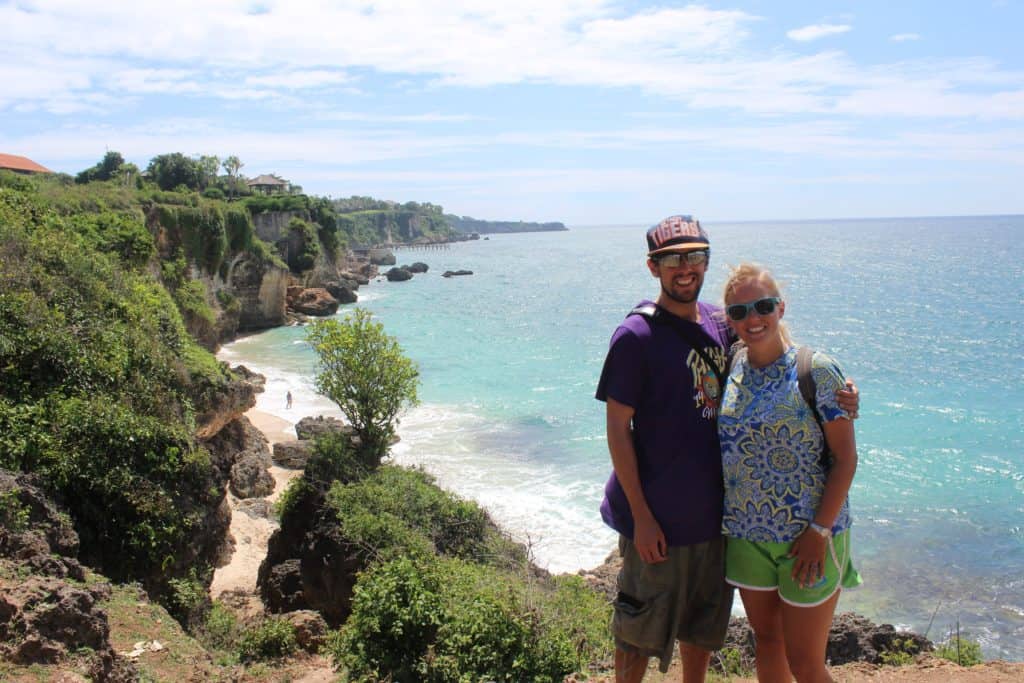
1. Tell us about yourself and sum up your travels for us.
Hi! We are Rachel and Sasha, The Grateful Gypsies! We’re from Tennessee and Michigan, respectively, but our life of travel began when we moved to China. After graduating college, we both tried to find “real jobs”, but it didn’t work out for a lot of reasons (mostly the terrible economy in 2009), so we moved to Beijing, China to teach English in 2010. That’s when our international travels truly began.
Since then we have traveled extensively in East Asia; Japan, South Korea and all over China. We’ve also been to every country in Southeast Asia except for Brunei and East Timor. In addition to China, we also lived in Bali and Mexico. In total, we’ve visited 14 countries together!
2. How have you funded your travels?
When we first moved to China, we had no money. We were really broke and in debt. Once we finally found decent teaching jobs, we finally began saving. After teaching for three and a half years and only traveling during holiday times, we finally saved enough for a full 14 months of non-stop travel.
We had a few different ways of saving. Since we’re a couple, it’s a little easier for us. First, we took on extra, part-time jobs. We were each earning about the same monthly amount from our full-time jobs (11,000 RMB ~ $1,600 USD per month), which was enough to pay our living costs. We would use Sasha’s salary to cover rent, utilities, and food and save Rachel’s. The money we earned from our part-time jobs was used to fund anything extra like a night out on the town, a concert, or short trips within China.
We saved about $25,000 USD for that first big trip. When it was finished, we headed back to China. This time to a different city, Kunming, and began the saving process again. Rachel found another teaching job and Sasha was blogging full time for a company called Transparent Language. That blogging job was the first location independent job either of us had.
In the spring of 2016, Rachel got a job with an online teaching company called VIPKID. This is when we both finally became location independent and could start working on the road. We earn a base pay per class ($8.50 for Rachel, $8 for Sasha) and then bonuses on top of that. Sasha is paid $40 per article and $50 per video for Transparent Language.
Because it is freelance work, our income varies month to month depending on how many classes we teach and blog posts we write. When we are moving around a lot, we earn less. When we’re more stationary, we earn more. July and August are the best months for teaching because there are more available class times. In August, Rachel earned $1,924.25. This month, we’re going to Colombia to begin our South America adventure. We will probably only earn about $700 each for September because we will be doing a lot of moving around. To balance it out, we will base ourselves in Medellin, Colombia in October so we can teach more. The goal is to make at least $1,500 each for teaching in the month of October. Sasha aims to make $1,250 for his blogging job every month.
Our goal is to develop multiple income streams. We have our own lifestyle and travel blog which we plan to monetize in the near future through affiliate sales and digital products.
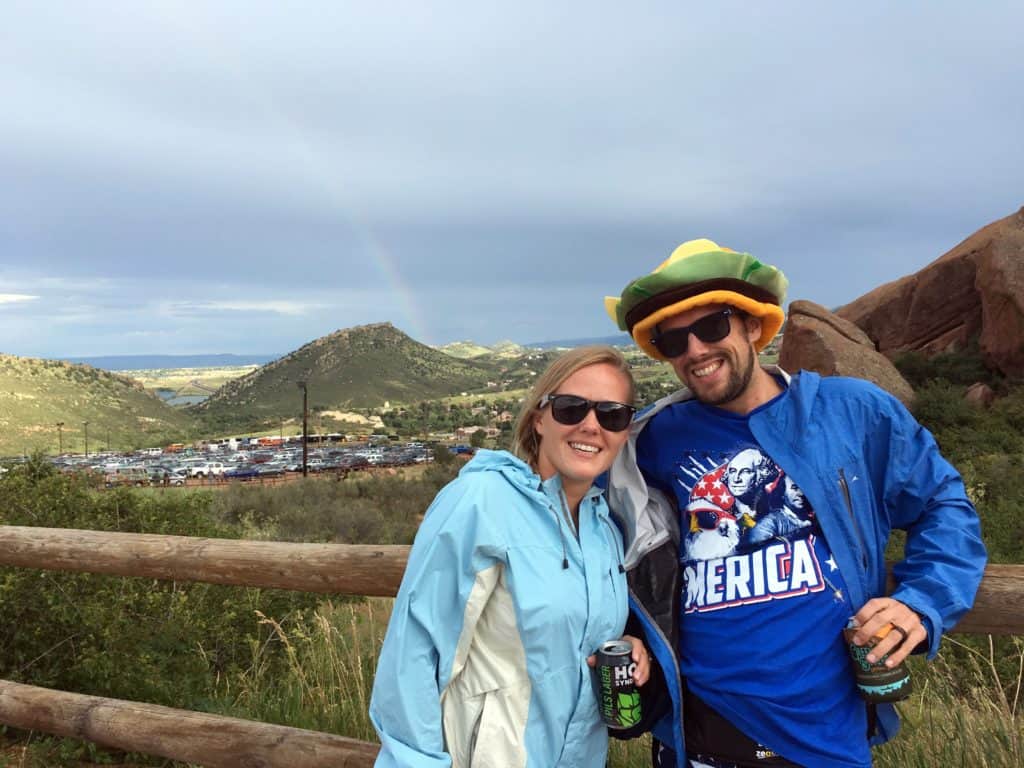
3. Tell us about your budget.
Making a budget is very important for our travels as we don’t earn a ton of money. Every week, Sasha will sit down and check our credit card statements and compare it to our bank account to make sure there are no surprises. He also keeps a running tally of how much we owe for taxes. His student loan payments are also taken into account. Then, he sets our budget based on that information.
Our budget varies depending on where we are and how much moving around we’re doing. On our first big gap year trip, our budget was about $1,000 USD per person, per country. At the time, we didn’t have smart phones so we kept up with our spending by writing down everything we spent money on from hotel rooms to bottles of water. Now that we do have smart phones, we use an awesome app called Trail Wallet to track our spending.
We try our best to stick to our budget but we don’t beat ourselves up if we slip. It’s important to treat yourself every now and then, even if it puts you over.
Every time we’re in a new country, we plan out the big ticket items that are important to us and then budget around that. If we go over our budget one day, we’ll spend the next day lounging in a hammock with a book and only spend what we need to survive. For example, Angkor Wat in Cambodia is a big expense that will blow any budget out of the water. To balance it out, we spent a full week in Siem Reap doing really cheap or free things on the days we weren’t checking out temples.
The best thing to do is to decide what’s most important for you and plan your budget around that. If you love eating delicious, fancy food, then be prepared to do that and spend less on accommodation. If you prefer staying in more upscale hotels, do that and eat street food. There’s always a way to balance the budget.
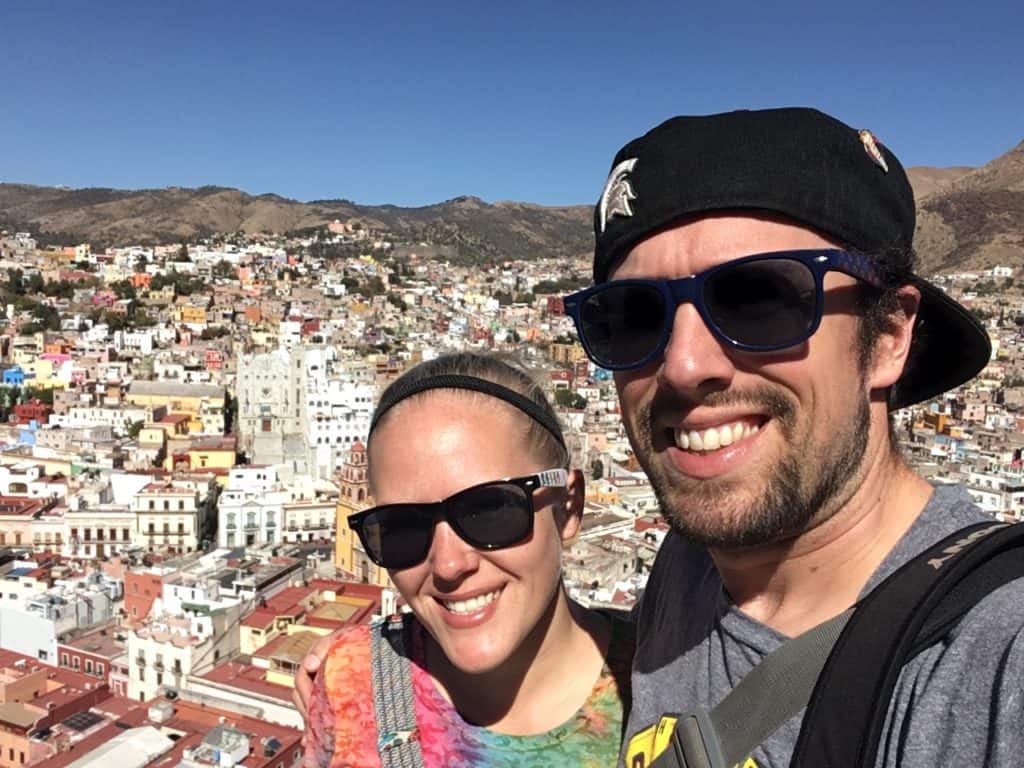
4. What have you learned about money since hitting the road?
Since hitting the road we’ve learned a lot about money. We’ve mostly been traveling in developing countries as they are much cheaper. It’s been pretty easy sticking to our budget. We’ve gotten pretty good at balancing it out.
A little bit of planning can go a very long way for a budget.
We exclusively stay in Airbnb rentals. We try to book places at least a month and a half in advance of our arrival and we always try to book for a week or a month because a lot of hosts will offer discounts. Transportation, accommodation, and food are always the biggest expenses. If we can book the transportation and accommodation in advance, then we know how much we have left to spend on other things.
5. What’s your top tip for someone trying to figure out how to make long-term travel financially possible?
Our top tip for making long-term travel financially possible is to practice. Practice making a budget in your everyday life and see if you can stick to it. Write down everything you spend money on.
All the little expenses really begin to add up. Is there something that you spend money on regularly that you could live without? How about that cup of coffee from the coffee shop every day? Start making your own coffee at home. Do you pay for a lot of subscription services? Cut out the ones you don’t need. We’ve never had an Amazon Prime account or a Spotify subscription, nor have we ever had Netflix. YouTube has enough of everything to keep us entertained.
When you’re on the road, plan to stay in places for longer. When you move around less, you spend less. Plus you can get discounts on Airbnb when booking for a week or month. You also get to know a place better when you stay longer. Be conscious of your spending.
Before you try to start your own business, try doing some freelance work for other people so you can learn the skills it takes and to see if you even like it. Some people get burned out very quickly. Working on the road is quite different from just traveling.
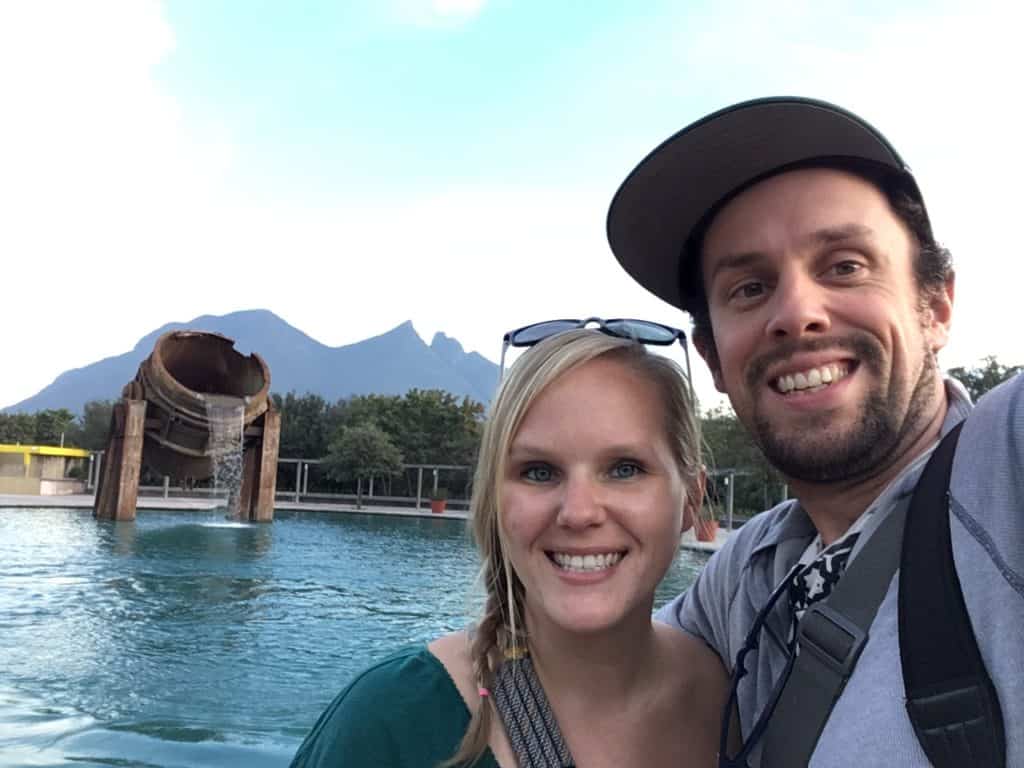
6. If someone wanted to follow in your footsteps, are there any online resources you’d recommend?
For anyone who is interested in teaching English, we advise getting a TEFL or TESOL. These are both certifications that prove you’ve had the necessary training for teaching ESL. The best, most standardized certification is the CELTA. But it’s very expensive (around $2,000USD) and intensive, usually about 120 classroom hours. Before you make that commitment, there are a number of cheaper online TEFL courses. We personally recommend My TEFL. They have multiple, affordable options for getting your TEFL online, on your own time. They can even help you find a teaching job abroad.
Other websites that are great teaching resources are:
Linguahouse.com – They have many lesson plans and worksheets for different ability levels. They have a free subscription option but it’s very limited. There are two other subscription levels that provide unlimited access.
LanternFish (BogglesWorldESL) – This is a great website for making vocabulary worksheets and games for young or low ability ESL learners. In addition, they have vocabulary and writing exercises specifically for adults.
Busyteacher.org – Here, they have an endless supply of worksheets and activities for free.
7. What’s some of your favorite travel gear that enables you to do what you do?
Victoria Tourist backpack – great for carrying a laptop, tablet, books, charging cords, and clothing. Plus, it can pass as a carry on item.
Sony A6000 – a great mirrorless camera that’s much easier than a DSLR to travel with. The photo quality is just as good as a DSLR, plus you can easily switch from photo to video mode with the push of a button. We use the 55 – 200mm lens as well as the stock 18 – 55mm.
GoPro Hero 5 – perfect video camera for anyone, especially the adventure travelers. It’s super small and light.
DJI Spark – travel-size drone than can launch from the palm of your hand. You can also fly it both inside and outside and control it with your movements.
Toshiba Satellite 2-in-1 touch screen computer – great for teaching online thanks to the touch screen function.
8. Where can people follow your travels?
You can find us on our website: www.gratefulgypsies.com
Facebook – https://www.facebook.com/gratefulgypsies/
YouTube – https://www.youtube.com/channel/UCn5T0r4o5KV4qoyQyR7Buww?view_as=subscriber
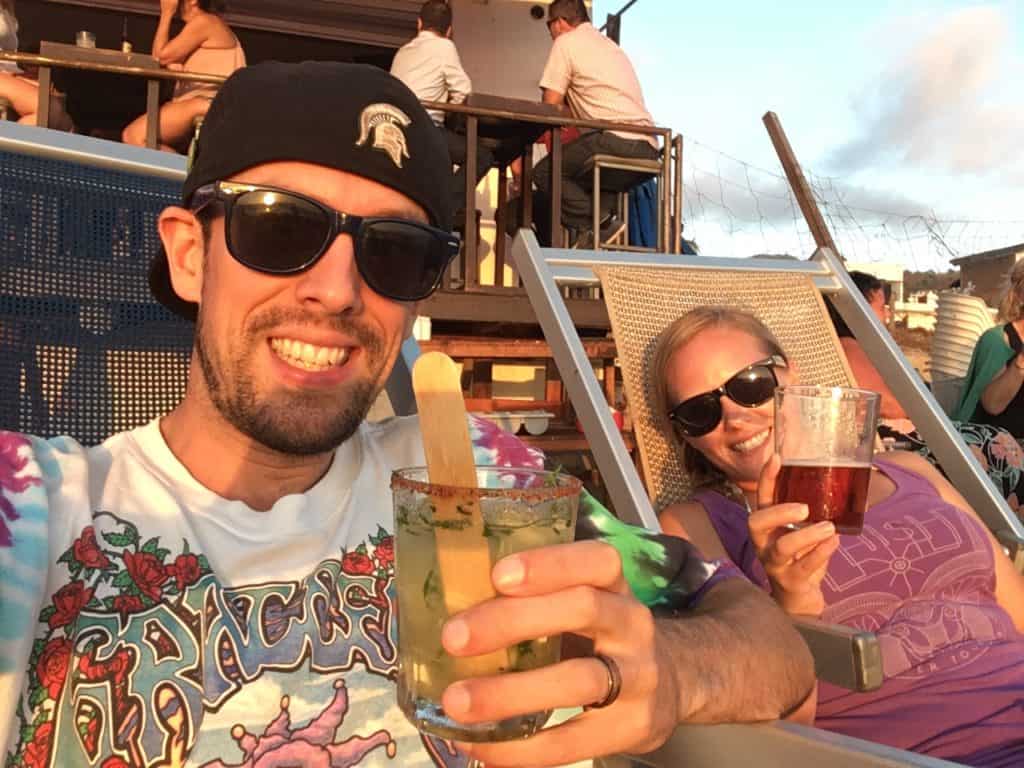
Another great article!!!!